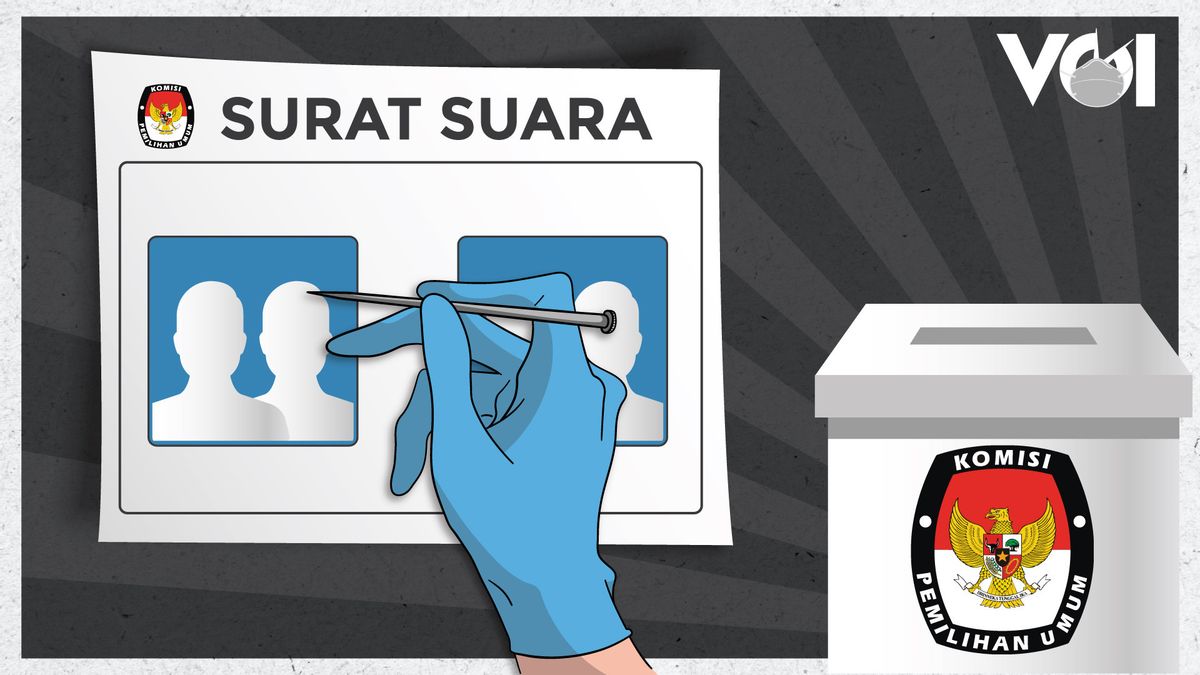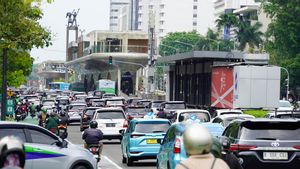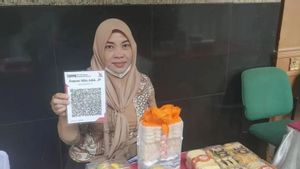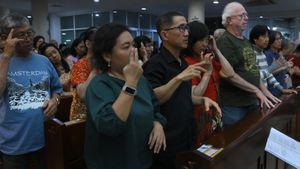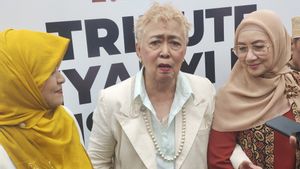JAKARTA - The time for the 2020 regional elections has finally arrived. A total of 9 provinces, 224 districts and 37 cities will hold a democratic party to elect regional heads who will lead for the next five years amid the COVID-19 pandemic.
Minister of Home Affairs (Mendagri) Tito Karnavian is optimistic that this regional head election will be enthusiastically followed by the community even though it is held in a situation where the spread of COVID-19 is still happening. He claimed that the public believed that there would be no new cluster after this democratic party.
This claim emerged after he read the results of a survey conducted by Saiful Mujani Research and Consulting (SMRC) which stated that 83 respondents would exercise their voting rights today. Even if there are people who do not vote, this is not due to fear of contracting COVID-19 but because of other things, including the absence of candidates who are deemed appropriate.
"So, if someone is not present, they vote not because they are afraid of contracting the corona, but also because they think that the pilkada is not important and that there are no convincing candidates," said Tito during a speech at the coordination meeting ahead of the Simultaneous Pilkada, Tuesday, December 8.
"If 83 percent say they vote, meaning using this voting right, we think it will be good to give legitimacy to candidate pairs who might win," he added.
It is known that on Sunday, December 6, the SMRC issued a survey result entitled Citizens' Readiness to Participate in Pilkada during the Covid-19 Period. The findings of this survey institute, the majority of citizens are enthusiastic about participating in this event and have a high level of awareness about the planned pilkada.
These results were obtained from a survey that was conducted on November 4-7 through telephone interviews with 1,200 randomly selected responses. The margin of error for this survey is estimated to be around 2.9 percent.
SMRC said, at the national level, 79 percent of the public knew about the implementation of the pilkada. Meanwhile, around 91 percent of residents who live in the regional elections know that a democratic party will be held soon.
Of the people who know, as many as 92 percent of respondents or 83 percent of the population in 270 districts / cities and provinces admitted that they would vote. Meanwhile, about 8 percent said they would not vote.
Despite high enthusiasm, this survey institute said that 77 percent of people in the regions holding regional elections claimed to be worried about contracting COVID-19. But, at the same time, 64 percent of the people still want the pilkada to be held because they hope to have a regional leader who has a mandate from the people, not because they are appointed by the government.
In line with the findings of the SMRC, the Director of the Indonesia Political Review (IPR), Ujang Komarudin, also assessed that the voter turnout rate today will remain high or even reach 70 percent. However, the reason he put forward was not because they wanted a leader they chose themselves, but the community felt that they no longer cared about COVID-19, especially since there were quite a few areas that did not have awareness of health protocols.
The second reason, these voters could have been mobilized by timses and candidates to come to the polling station with certain lure. "So, seeing this possibility, voters will still vote and the percentage could be above 70 percent," he said.
Furthermore, to reduce the number of health protocol violators, Ujang assessed, it is necessary to apply strict sanctions against voters who violate the health protocol. Even though it will be difficult to implement it in the field, this must still be done so that the Pilkada is maintained and COVID-19 does not spread.
Rules when voting in the middle of a pandemicAs the organizer of the elections, the General Election Commission (KPU) has actually prepared a number of facilities and infrastructure, including new rules for voting. All of these rules must be enforced without exception by the community. As shown on the KPU RI YouTube account, there are a number of new regulations in implementing safe voting for COVID-19.
First, voters who come to polling stations (TPS) are required to wear masks and must maintain a safe distance.
Second, voters are required to wash their hands when they arrive at the TPS, when going to vote, and after voting at the hand washing facilities that have been provided. Third, before entering the TPS, voters will have their body temperature measured. For voters with a high body temperature or more than 37.3 degrees Celsius, they will be invited to vote in a special voting booth.
Fourth, in order to prevent transmission through touch, voters are required to wear plastic gloves provided by the TPS committee when voting. Fifth, different from ordinary years, in the midst of this pandemic, people will no longer dip their fingers in election ink but only with a drop.
Sixth, the number of voters in one polling station will be limited to 500 people and the entire polling officer group (KPPS) will be required to wear personal protective equipment (PPE) in the form of masks, face shields or face shields, and gloves to prevent transmission.
Seventh Rule, there must be no crowds or physical contact at the polling stations, including shaking hands and others.
Eighth, to prevent exposure to the virus, each TPS will be sprayed with disinfectants periodically.
Finally, the voting hours of the voters will be set and this will be stated in the Voting Notification Letter. Through this letter, there will be information on voting time and an appeal for voters to wear masks, bring pens, and personal identities such as KTPs and KTP Recording Certificates. The 2020 Pilkada voting schedule on December 9 tomorrow will start at 07.00-13.00 local time.
Sanctions for violating health protocolsSpokesperson for the Task Force (Task Force) Handling COVID-19 Wiku Adisasmito said voters who violate health protocols at polling stations (TPS) will be given sanctions, which can be in the form of a warning to prohibited from voting. Firmness against violators of this protocol, he said, needs to be taken to prevent new clusters from occurring. Because, the 2020 Pilkada can only be said to have been successfully held if there were no new clusters after the voting took place.
"The Task Force asks for firm action if the voters do not enforce health discipline during the Pilkada. If the voters do not apply discipline, the organizers have the right to refuse voter participation at the TPS concerned for the sake of public safety," Wiku said in an online press conference broadcast on the YouTube account of the Presidential Secretariat. , Tuesday, December 8th.
This strict sanction is also given to voters who are caught congregating at the TPS or during the general election. Wiku said the central task force had ordered the regional task force to crack down on them by giving a strong warning to the point of dispersing the crowd.
In addition, Wiku also asked the public to be proactive in reporting when there were violations of health protocols around them, especially during the voting process.
"If people find violations at the polling station where they vote, the public has the right to report to their duties and ask to take firm action," he said.
The English, Chinese, Japanese, Arabic, and French versions are automatically generated by the AI. So there may still be inaccuracies in translating, please always see Indonesian as our main language. (system supported by DigitalSiber.id)
